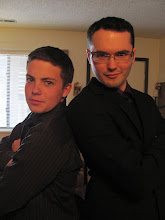“When we forge a link… What are the ripples?”
The above question is the origin of my research. The video “Twilight of The Leaders” is a representation of what I discovered. My original focus for research surrounds the social movements and revolution that occurred within Egypt. New forms of social media are establishing platforms for collective action. As I watched the occurrences in Egypt, I began to ask another question. “Where are the leaders within the social movement?” My scope for social movements had to be broadened historically. The video I have created is developed through a historical study about forms of “medium” and how we us said medium for social movements.
Through my research, I discovered a trend that moves toward the disappearance of a single ‘unit' leader. My blog develops the historical instances in which medium shifts the agency of individuals. If the medium changes, then so does the approach. We are truly redefining 'how we operate and how we make decisions' as individuals and groups. This new dynamic has fantastic outcomes, but it also has its caveats. Through a systems comparison, I attempted to depict a representation of social media change and its effects on agency.
“Theory suggests that the accuracy of a decision often increases with the number of decision makers” (Conradt).
“However, there are three caveats about the benefits of decision sharing. First, if the abilities of potential decision makers vary widely, it might still be better to listen to one 'expert' (List). Second, there is the danger of information cascades, whereby decision makers no longer contribute independent information but instead amplify shared misconceptions (Sumpter and Pratt). Finally, in many decisions, the goals of individual decision makers differ: that is, different members of the decision-making group favour different outcomes” (Conradt and Roper).
Sources:
Abstracting Reality by Mark J. Wolf
Beyond Boundaries by Miguel Nicolelis
Collapse by Jared Diamond
The Courage to Teach by Parker Palmer
Democracy in animal groups: a political science perspective by Christian List
Group decision-making in animals by Larissa Conradt and T. J. Roper
Mediated by Tomas De Zengotita
The Medium is The MASSAGE by Marshall Mcluhan
Quorum responses and consensus decision making by David Sumpter and Stephen Pratt
Revolution and War by Karl Marx
Smart Mobs by Howard Reingold
When it Pays to Share Decisions by Larissa Conradt
Wired for Chang Remix: Session 2 - Dispatches From the Wired World: Technology for Social Good
